Job Seekers
Your Next Career Move Starts Here
At Finforce, we believe in connecting great people with great opportunities. Whether you’re just starting out or looking to take the next big step in your career, we’re here to help you succeed. From personalised support to industry insights, our mission is to guide you toward meaningful work that matches your skills, goals, and values.

Let's Get You Noticed
Ready to take the next step? Send us your CV and our recruitment specialists will be in touch if a suitable opportunity arises. We’ll keep your details on file and match you with roles that align with your experience and aspirations.

Explore Available Opportunities
Looking for something specific? View all available roles across a wide range of industries and find the perfect fit for your next chapter. Our listings are regularly updated, so check back often.
Interview Tips
Research the Company & Role
Understand the company’s mission, values, products, and culture.
Review the job description carefully to align your skills with the requirements.
Prepare Your Elevator Pitch
Summarise who you are, your experience, and what you bring to the role in 30-60 seconds.
Practice Common Interview Questions
Examples: “Tell me about yourself,” “What are your strengths and weaknesses?” “Why do you want this job?”
Prepare Questions to Ask the Interviewer
Shows interest and helps you assess if the role/company fits your goals.
Dress Appropriately
Research the company culture for dress code expectations—business formal or casual?
Be Punctual
Arrive early (or be ready early for virtual interviews). This shows professionalism.
Use STAR Method for Behavioral Questions
Structure answers with Situation, Task, Action, Result to clearly explain experiences.
CV Tips for Job Seekers
Step 1
Keep it clear and concise
Ideally, 2-3 pages, focusing on relevant experience.
Use bullet points for easy reading.
Step 2
Tailor Your CV to the Job
Customize your CV for each role by highlighting relevant skills and experience.
Step 3
Strong Personal Statement/Profile
Step 4
Use Action Verbs
Start bullet points with verbs like “managed,” “developed,” “led,” or “achieved.”
Step 5
Quantify Achievements
Use numbers to show impact: “Increased profits by 20%,” “Managed a team of 10.”
Step 6
Include Relevant Keywords
Use keywords from the job description to help pass automated applicant tracking systems (ATS).
Step 7
Highlight Education & Certifications
Especially if they’re relevant to the job.
Step 8
Avoid Unnecessary Details
Leave out outdated skills, irrelevant jobs, or personal info like age, marital status.
Step 9
Use a Professional Format & Font
Clean layout, easy-to-read font (like Arial or Calibri), and consistent formatting.
Step 10
Check for Spelling & Grammar Errors
Mistakes can make a bad impression. Use spell check and ask someone to review.
